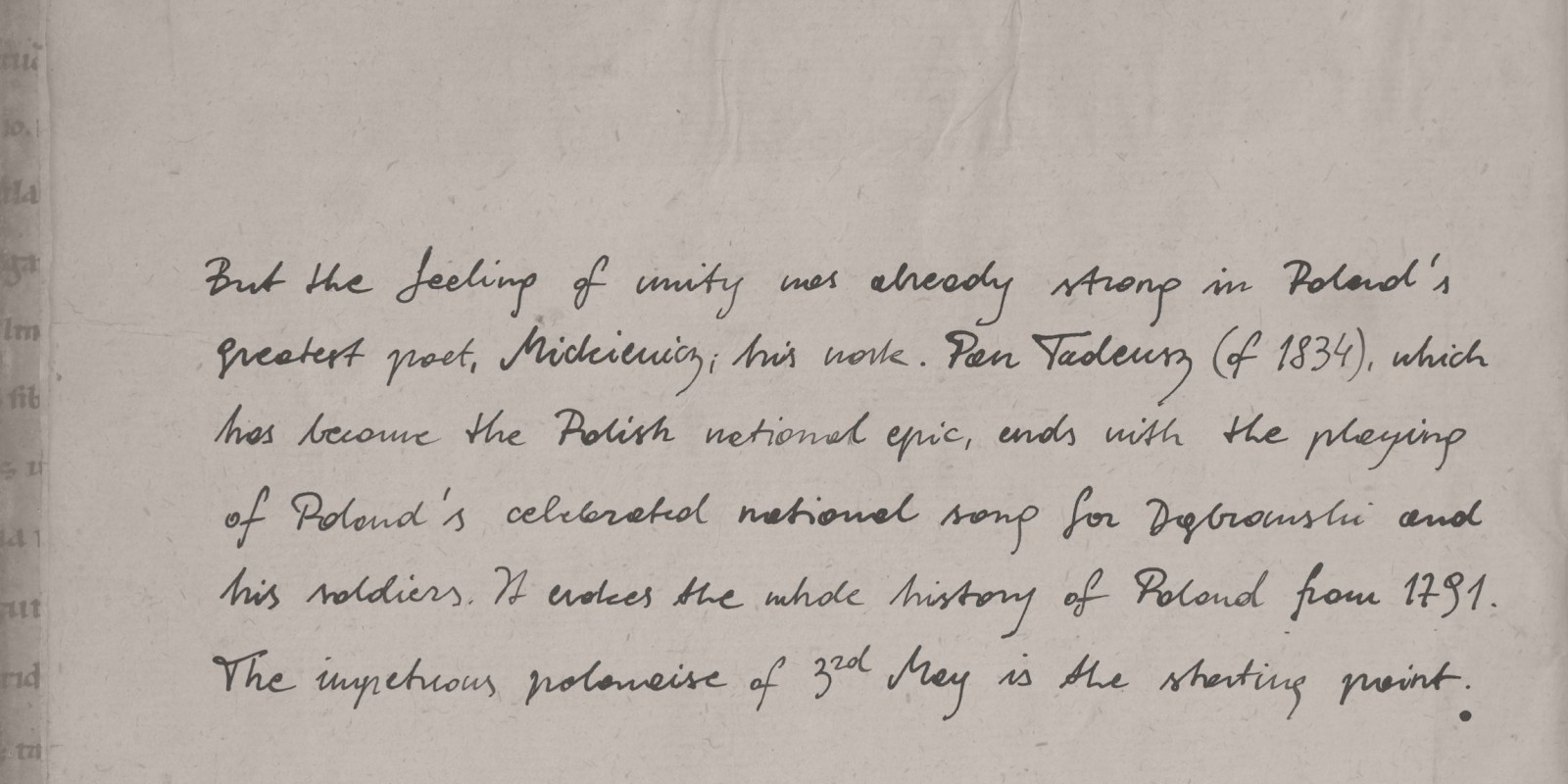
-
The phrase feeling of unity, in the context of Poland, would certainly have made the censor scratch his head. Progressive social ideas like liberalism, socialism and democracy, and even abstract words like ‘freedom’ were all banned from books and newspapers.
-
Polish, Poland or Poles were potentially dangerous words, evoking a reality that was subject to erasure under the partitions. Even seemingly neutral uses of the words, as in scientific terms like ‘Polish wheat’ (Triticum polonicum), were controversial.
-
Many works by Polish Romantic poets like Mickiewicz, Słowacki, Krasiński and Norwid were strictly forbidden in the country. In case of Mickiewicz, this pertained particularly to his Konrad Wallenrod and Forefathers’ Eve.
-
Much like Polish, the word national was a clear sign of patriotism which could not be tolerated by the censors’ pen.
-
The names of many military heroes and political leaders – such as Żółkiewski, Kościuszko, and Dąbrowski – were to be avoided, as any mention of their activity would naturally call Poland’s fate to readers’ minds.
-
Any historical dates or events that might be linked to the one-time glory of the Polish nation, such as the Constitution of the Third of May (1791) or the Battle of Grunwald (1410), were crossed out by the censor’s pen.
-
Censors were on the lookout for any mention of traditional Polish customs and culture, including elements of national music (e.g. the polonaise) or even traditional dress (e.g. the kontusz).
-
Below is an excerpt from Brandes’ lecture on Polish literature as published later in his book. Such a text would not have passed through censorship in the country. See what words and phrases would have been crossed out, and why.
-